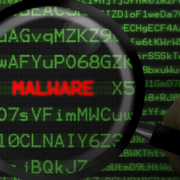The best email security tips you can’t afford to ignore
Take a look at this number: 320,000,000,000. That’s 320 billion – and it’s the number of emails that are projected to be sent daily by 2021. In 2019, we’re sitting at a lowly 293.6 billion daily emails.
But why should you care?
You’ve undoubtedly been bombarded with emails from your contacts, marketers, spam bots and more since the beginning of time. That makes it hard to differentiate legitimate emails from phishing scams and those with infected, virus-filled attachments. It goes without saying that falling victim to these cyberattacks also introduces staggering costs.
Here’s what you absolutely need to do to ensure you’re protecting your business.
1. Train your people. Yes, all of them.
Security starts with the user. Technology solutions can do a great job of weeding out the sneaky, tech-based attacks … but that isn’t the primary issue. According to CSO, 56% of businesses say that targeted phishing attacks were the top security threat they faced in 2018.

Back it up: What are phishing attacks?

Training your staff to understand, recognize, and avoid malicious emails is the key to reducing security-related headaches. You can do that by spreading helpful knowledge about these threats to your staff, as well as hosting seminars and trainings to actually show them what they look like.
2. Encrypt what really matters to you
There’s a very good chance that your email provider already offers an encryption option within your platform. You’ll want to encrypt both emails sitting in your folders (known as “at rest” encryption) and emails traveling between you and your contacts (known as “in transit” encryption).

Show me more: Details on encryption security methodology

Without encryption, your email is as exposed as a postcard. If someone were to seek out and intercept it, they could read the contents with relative ease. Similarly, when it lands in an inbox, it should be protected by an envelope of encryption – otherwise, you’re just throwing it down on a table for anyone walking by to read.
3. Set stringent password requirements
Though it can be annoying to staff, password policies are critical to network security. Setting password rules at the domain level lets you set expirations for aging passwords. In turn, that forces staff to use new passwords that aren’t shared across the rest of their accounts.
It’s a general bit of cybersecurity advice, but it’s still very much relevant for emails. If your staff has trouble remembering all of the different passwords across their accounts, consider purchasing a password management software tool, such as LastPass or Dashlane, to keep things simple.
4. Use endpoint protection software
While the user is still the undisputed champion of their own security, having a robust security program in place to detect malicious emails is always a good idea. Modern email security solutions can come with customizable packages that are an affordable and effective investment into your overall cybersecurity posture.

Related: 6 essential items for your mobile security checklist

Many organizations use cloud-based security offerings, like Gmail or Office 365 Exchange servers. This falls into a fuzzy, gray area of security – who’s in charge of keeping things safe? The email hosting organization or the business that uses the service? The answer, as it turns out, is both. Consider investing in hybrid security solutions that cover all of your bases while closing any potential gaps.
5. Don’t send everything through email
It’s strange reading this from a technology article, but here’s a shocking truth: some things shouldn’t travel through email. Sensitive information, such as billing formation, routing numbers, and employee identification numbers, are better handled via phone calls, in-person interactions or even secure portals or applications requiring secured links and/or login credentials.
If you’re unsure of the level of security within your organization (or the recipient’s), it’s always better to be safe than sorry. After all, it just takes one data breach snafu to suffer dire consequences … from compliance lawsuits to data extortion from criminals.
Have any security questions? Ask us anything
TFE is dedicated to making businesses safer overall. Without a doubt, email security is a threat that will continue to grow. Therefore, it’s best to take precautions proactively, rather than reactively.
At the very least, it’s better for your wallet (and sanity).
If you have any other questions related to email or network security, let us know. We’ve got a team of cybersecurity experts that are here to help you address and answer your security challenges as a part of your broader business strategy.










